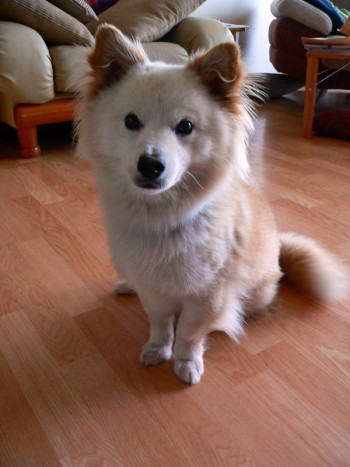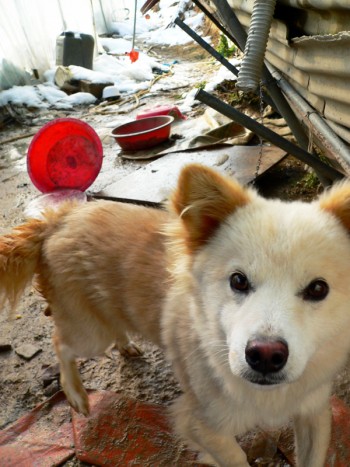When I see a chained or caged dog these days, I’m no longer surprised. My heart still aches for every one. Luckily, I’ve had the chance to get a couple off their chains, but even if I can’t rescue them all I’d still like to help somehow. Of course I’m not the only person who feels this way. The problem is sometimes I don’t know what to do, especially because of the language barrier.
The article '15 Ways to Help a Chained Dog' collects practical ideas on how to improve the life of a dog who lives tethered 24/7. Those suggestions are most effective if you can communicate with the owner, but approaching the owner of a chained dog is a delicate situation. I think it’s nicer to speak Korean as much as possible, even if he or she knows English. If you don’t know much Korean, start with “An-nyeong-ha-se-yo” and then learn some basic phrases from a friend. What a good reason to study!
The suggested conversation starters below are phrases you can use when approaching the owner of a chained dog for the first time. Some of the icebreakers may help you explain why you’re there. Talking about non-dog related things and telling them about yourself will hopefully build familiarity and trust if you intend to visit more than once. No matter how bleak the situation, be polite and focus on nice points. When I befriended my first chained dog and owner, I regularly found myself in a gas station full of amicable Korean men. I gave them dog biscuits and a box of coffee for Christmas. Two weeks later they gave me a box of seaweed paper for Korean New Year. Eventually, they gave me their dog.
Don’t worry, not one but two Korean friends proofread and corrected my sentences. Good luck!
이 강아지는 당신 강아지예요?
Is this your dog?
강아지의 이름이 뭐예요?
What’s your dog’s name?
강아지 몇 살이예요?
How old is the dog?
이 강아지가 어떤 종이예요?
What breed is the dog?
암컷이예요? 수컷이예요?
Male or female?
캐나다/ 미국 / 호주/ 에서 우리 부모님이 강아지 1마리 키워요.
My parents have 1 dog in Canada / the USA / Australia.
당신의 강아지는 우리 부모님의 강아지를 생각나게 해요.
Your dog reminds me of my parents’ dog.
당신의 강아지는 어렸을 때 키운 강아지를 닮았어요.
Your dog looks like a dog I had when I was a kid.
우리 강아지 보고 싶어요.
I miss my dog.
강아지 보러 다시 와도되요?
Do you mind if I come back to visit your dog?
After you’ve developed a friendship with the owner, maybe try this:
당신의 강아지를 산책 시켜도되요?
Could I take your dog for a walk?
20분 후에 돌아올게요.
I’ll be back in 20 minutes.
When you do get back, don’t forget to add: 재미있었어요! (That was fun!)

This article was written by Karen Busch and originally posted in October, 2006.

